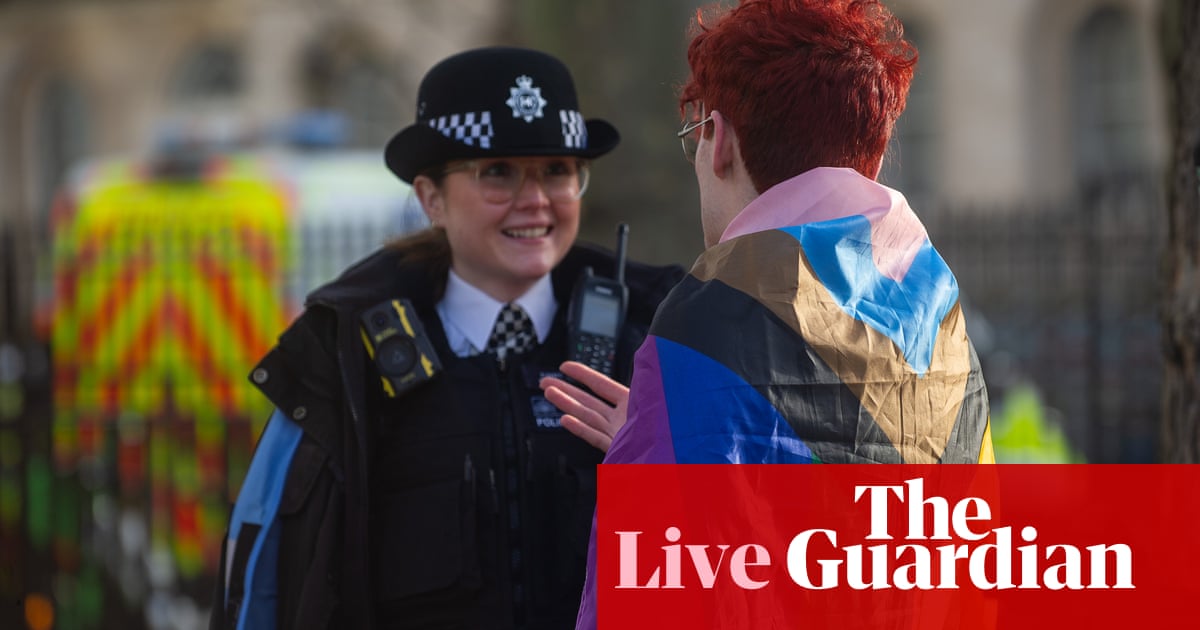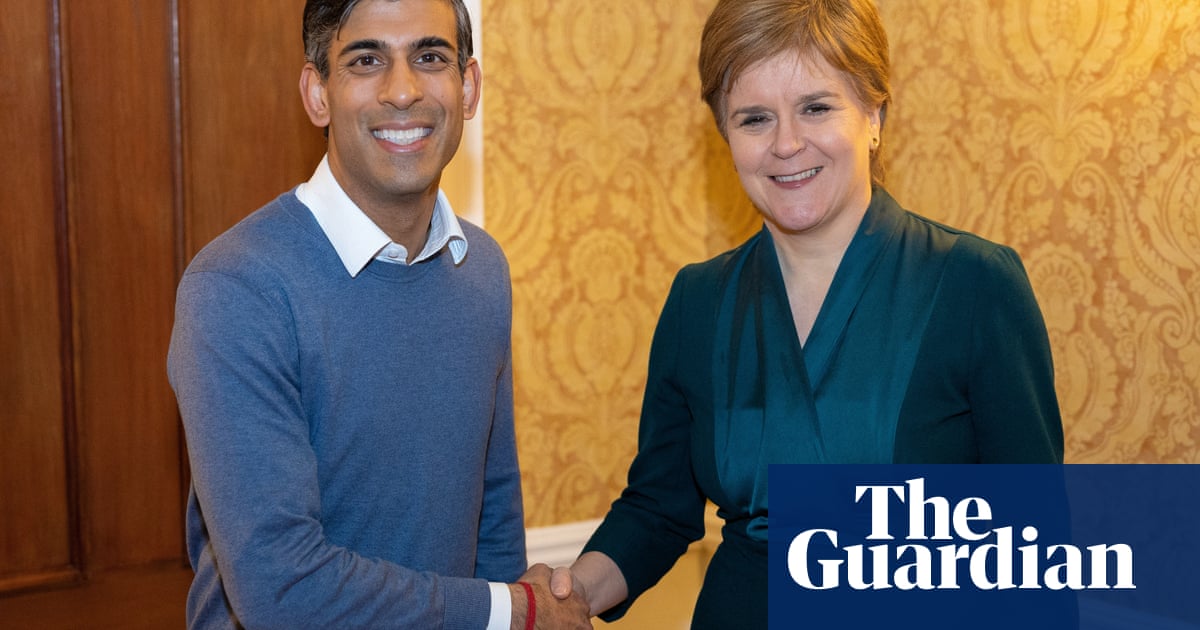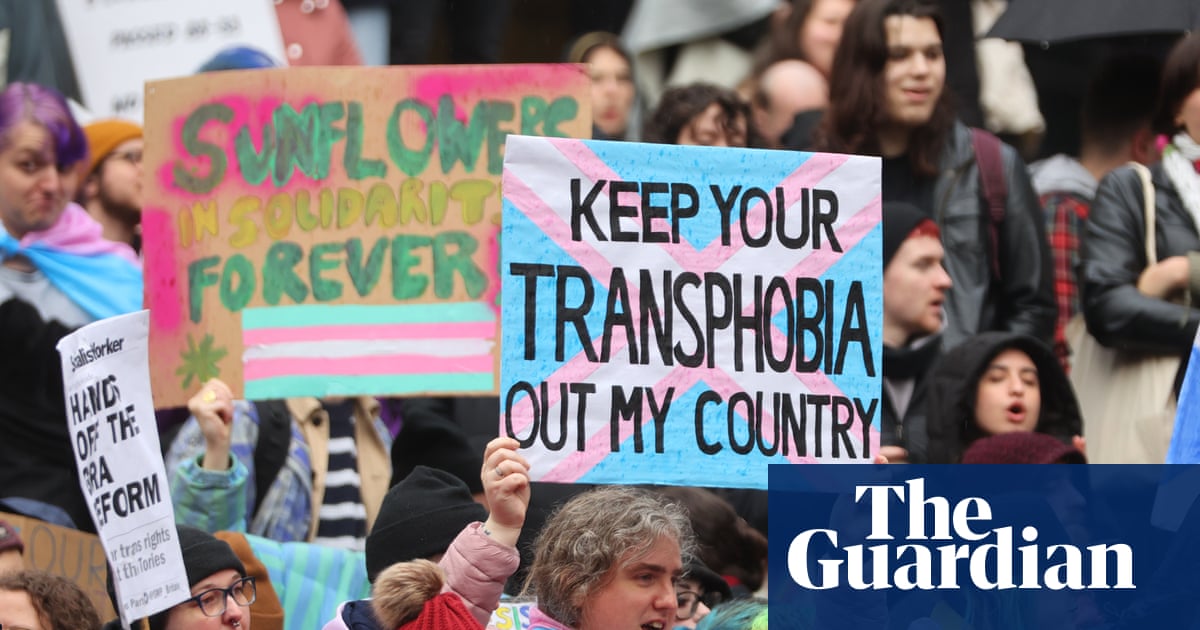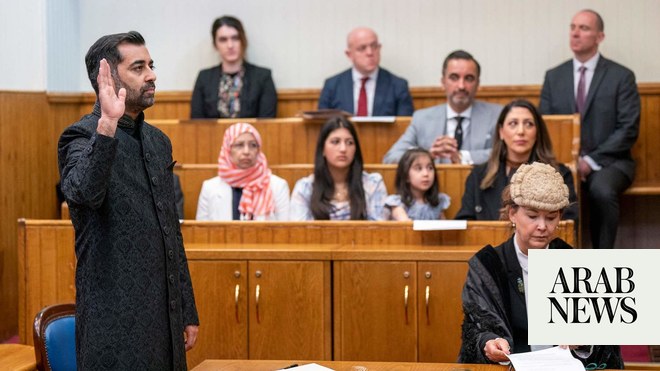
After the celebratory whoops and hugs, an initial euphoria has given way to reflection as trans and non-binary Scots consider what the passing of the gender recognition reform (Scotland) bill means for them.
The Holyrood parliament on Thursday afternoon voted overwhelmingly and cross-party for Scotland to become the first part of the UK to introduce a system of self-identification to change one’s legal gender, sweeping away requirements for a medical diagnosis of gender dysphoria and extending applications to 16- and 17-year-olds.
But the final vote took place after months of increasingly hostile and angry public debate around whether these changes would adversely affect women’s rights and spaces. Campaigners say too often transgender voices felt they were absent from those discussions.
As Vic Valentine, the manager of Scottish Trans, said when they welcomed the news: “Trans people across Scotland will be feeling pleased and relieved that this bill has passed after many years of difficult public debate that has often felt like people are talking about us, and not to us.”
Beth, a queer activist, was watching the proceedings from the public gallery in Holyrood and described it as “an amazing day for the queer rights movement in Scotland”. Nevertheless, she also suggested that the toxicity around the reforms had “allowed intolerance to grow”.
“Hate crime figures are rising at a worrying rate. However, I hope that when the bill becomes law, people will see, just like every other country before us, that the misinformation behind gender recognition reform is simply that.”
“It was definitely a significant moment,” said Dylan Hamilton, a climate activist, “and it was important to show that the majority voted for these reforms, because sometimes with this debate it can feel like the entire world is against you”.
Like many trans Scots, he also noted the extensive delays in the bill’s progress: it was promised six years ago, went through two of the largest consultation held by Holyrood, and was paused for the pandemic.
“Gender recognition has become a frontline issue because of this bill but it’s not the most important thing for most trans people,” Hamilton adds. “It’s just an administrative issue to make life more dignified, but much more important are the horrifically long waiting lists, hate crime and the coming conversion ‘therapy’ bill [Scotland will include transgender people in its ban on the practice, while the UK government U-turned to exclude them earlier this year].”
Jennie Kermode, a writer and film-maker, agrees there are other pressing issues for the trans community but adds: “There is also the political context of the bill, and the significance of seeing state support for people to live their lives.”
Kermode believes that the public discourse has left some disillusioned: “Trans people have lost some of the optimism and sense of security they had about how they would be treated in Scotland.”
For non-binary people, the progress of the bill was a disappointment as it did not include them as originally proposed. Andie, a marine biologist, says: “Non-binary people are still trying to get our own recognition but this is a good step.
“It’s still a victory and that tunes out the horrible things people have said, because it shows we’re still going in the right direction even though it takes time.”












